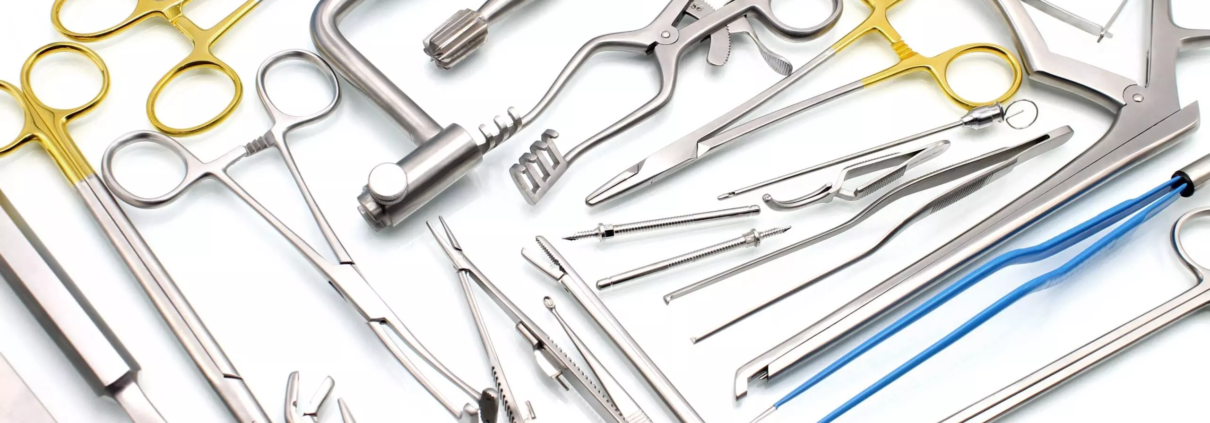Exploring the Role of a Medical Instrument Manufacturer in Modern Healthcare
Medical Instrument Manufacturer
Behind every successful hospital and clinic lies a strong backbone of reliable medical equipment. From surgical scissors to advanced diagnostic tools, the healthcare industry depends heavily on manufacturers who design, produce, and deliver high-quality instruments. A medical instrument manufacturer plays a crucial role in ensuring patient safety, accurate diagnoses, and smooth medical procedures. Without these instruments, doctors, nurses, and surgeons would struggle to perform even basic tasks effectively.
This article explores the importance of medical instrument manufacturers, how they operate, their impact on healthcare, and what factors to consider when choosing the right manufacturer.
What Does a Medical Instrument Manufacturer Do?
A medical instrument manufacturer is responsible for designing, producing, and supplying various tools and devices used in the healthcare industry. These instruments range from simple tools such as scalpels, syringes, and stethoscopes to advanced machines like ventilators, ultrasound scanners, and surgical robotics.
Their work does not stop at production; they also focus on quality assurance, sterilization processes, and compliance with international health standards. This ensures that every instrument is safe, durable, and effective in clinical use.
The Importance of Medical Instrument Manufacturers in Healthcare
The significance of medical instrument manufacturers can be seen in three main areas:
- Supporting Doctors and Surgeons – High-quality instruments enable medical professionals to perform surgeries and treatments with precision.
- Improving Patient Care – Reliable instruments mean accurate diagnoses, faster recovery, and safer treatments.
- Advancing Technology – Manufacturers continuously innovate, bringing in modern devices such as digital monitoring tools, AI-based scanners, and robotic surgical systems.
Without trustworthy manufacturers, the entire healthcare system would collapse under inefficiency and risk.
Categories of Medical Instruments Produced by Manufacturers
Medical instrument manufacturers produce a wide range of tools that fall into several categories:
1. Surgical Instruments
- Scalpels, forceps, retractors, scissors, clamps.
- Used during operations to cut, hold, and manage tissues.
2. Diagnostic Instruments
- Thermometers, blood pressure monitors, ultrasound machines, MRI scanners.
- Help in detecting diseases and monitoring patient health.
3. Therapeutic Instruments
- Infusion pumps, dialysis machines, physiotherapy devices.
- Used for treatment and recovery purposes.
4. Monitoring Instruments
- ECG machines, pulse oximeters, fetal monitors.
- Provide real-time data about patient conditions.
5. Disposable Instruments
- Syringes, gloves, catheters, surgical masks.
- Designed for one-time use to avoid infections.
Each of these categories is vital for smooth healthcare operations, and manufacturers ensure they meet strict standards for safety and reliability.
How Medical Instrument Manufacturers Maintain Quality Standards
Medical instruments must meet international certifications such as ISO, CE, and FDA approvals before being used in hospitals. Manufacturers follow rigorous processes including:
- Research & Development (R&D): Developing new designs with innovative technology.
- Raw Material Selection: Using surgical-grade stainless steel, plastics, or alloys.
- Sterilization Procedures: Ensuring products are germ-free and safe for patient use.
- Testing & Inspection: Checking for durability, sharpness, accuracy, and usability.
- Regulatory Compliance: Following strict laws and global health standards.
These steps guarantee that every medical instrument is effective and safe in real-world healthcare environments.
The Role of Technology in Modern Manufacturing
Technology has transformed how medical instruments are made. Modern manufacturers use:
- Computer-Aided Design (CAD): For precise product design.
- 3D Printing: To create prototypes and even final instruments.
- Automation & Robotics: For high-speed, error-free production.
- AI & IoT Integration: For smart medical devices that can monitor patients remotely.
This technological evolution allows manufacturers to meet growing demands and supply instruments worldwide.
Global vs. Local Medical Instrument Manufacturers
Medical instrument manufacturing is a global industry, with major hubs in countries like Germany, the USA, Japan, and Pakistan.
- Global Manufacturers: Known for advanced technology, large-scale production, and international exports.
- Local Manufacturers: Offer affordable instruments, customization options, and quick delivery within the region.
Both types play an essential role, and the choice depends on budget, needs, and required quality standards.
Challenges Faced by Medical Instrument Manufacturers
Despite their importance, manufacturers face several challenges:
- Strict Regulatory Compliance – Meeting international safety standards is costly and time-consuming.
- Rising Raw Material Costs – High-quality steel, plastics, and electronic parts are expensive.
- Counterfeit Products – Fake instruments in the market harm both manufacturers and patients.
- Rapid Technological Changes – Keeping up with innovation requires heavy investment.
Overcoming these challenges is necessary to keep healthcare systems functioning smoothly.
How to Choose the Right Medical Instrument Manufacturer
For hospitals, clinics, or distributors looking for a trusted partner, selecting the right manufacturer is crucial. Some factors to consider include:
- Reputation & Experience: Check how long the manufacturer has been in business.
- Certifications: Ensure they meet ISO and FDA standards.
- Product Range: A wide range of instruments shows capability.
- Customization Options: Ability to design instruments based on client needs.
- After-Sales Support: Availability of maintenance, training, and replacement.
A well-chosen manufacturer ensures long-term reliability and efficiency for healthcare providers.
The Future of Medical Instrument Manufacturing
The future looks promising with rapid advancements in AI, nanotechnology, and biotechnology. Soon, we may see:
- Smart surgical tools that provide feedback during operations.
- Nano-scale instruments for advanced cancer treatment.
- Wearable medical devices connected to mobile apps for real-time monitoring.
- Eco-friendly disposable instruments to reduce medical waste.
Manufacturers who invest in innovation will lead the healthcare industry into a new era of precision and efficiency.
Conclusion
A medical instrument manufacturer is more than just a producer of tools; they are the foundation of modern healthcare systems. From developing basic surgical instruments to advanced life-saving machines, they ensure hospitals and clinics can deliver effective treatment. Their commitment to quality, innovation, and patient safety keeps the healthcare industry moving forward.
As healthcare continues to evolve, the role of medical instrument manufacturers will only grow more important. Choosing the right manufacturer means choosing better healthcare outcomes, not just for today but for future generations as well.



Leave a Reply
Want to join the discussion?Feel free to contribute!